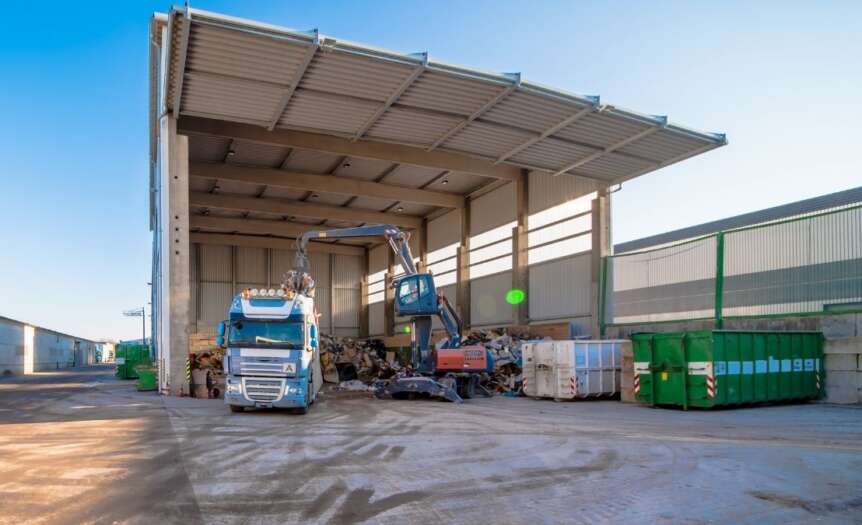It’s no secret that many factories and plants produce hazardous materials. And the surrounding communities often must bear the burden of the effects of poor industrial waste disposal. Trash and debris look unsightly, but this might be the tamest consequence of bad waste removal practices.
Whether you operate an industrial site or are an affected citizen, understanding how industrial waste affects nearby populations can help you make a change.
Increased Spending
Weak waste management practices lead to increased spending in many areas. For example, cities that struggle with hazardous materials must foot the bill to clean up messes and protect citizens.
Relaxed waste removal also poses a financial risk for businesses. Industrial disposal services might seem expensive, but they’re actually worthwhile investments. Handling toxic materials the right way helps sites avoid heavy fines for breaking federal and local disposal guidelines.
Water Pollution
One common effect of poor industrial waste disposal is water pollution. Toxic products can easily find their ways into local water supplies. Runoff from rainwater and irrigation systems often mix with hazardous waste, creating the perfect vehicle to contaminate water sources.
Waste accumulation in landfills can also produce toxic liquids that can seep into groundwater. In addition, dumping materials directly into large bodies of water harms marine life and destroys ecosystems.
Soil Contamination
Improper industrial waste management can also lead to soil contamination. Polluted soil is difficult to tend, making it hard for farmers and others who work in agriculture to cultivate essential resources such as food and fertilizer. Soil contamination also has massive effects on the environment. Wildlife that consumes hazardous materials can fall ill and even pass away without intervention. Toxic waste also degrades their ecosystems, displacing the animals and destroying their homes.
Health Concerns
If dangerous waste can harm animals and ecosystems, it can certainly also affect human health. Contaminated water is toxic to consume, often leading to a wide variety of medical problems. Breathing polluted air is just as harmful, and it can worsen preexisting conditions.
Bathing in tainted water can also cause plenty of issues with your hair and skin. In addition, drinking polluted water may lead to gastrointestinal, neurological, or developmental concerns. Many communities with poor air quality also report increased respiratory and circulatory problems.
It’s clear that hazardous waste takes a massive toll on everyone. Industrial sites that want to be part of the solution should improve their waste management methods to leave a clean, healthy world for everyone to enjoy.










 Deering Estate
Deering Estate
 Massage Envy South Miami
Massage Envy South Miami
 Calla Blow Dry
Calla Blow Dry
 My Derma Clinic
My Derma Clinic
 Sushi Maki
Sushi Maki
 Sports Grill
Sports Grill
 The Healthy Kitchen
The Healthy Kitchen
 Golden Rule Seafood
Golden Rule Seafood
 Malanga Cuban Café
Malanga Cuban Café

 Kathleen Ballard
Kathleen Ballard
 Panter, Panter & Sampedro
Panter, Panter & Sampedro
 Vintage Liquors
Vintage Liquors
 The Dog from Ipanema
The Dog from Ipanema
 Rubinstein Family Chiropractic
Rubinstein Family Chiropractic
 Your Pet’s Best
Your Pet’s Best
 Indigo Republic
Indigo Republic




 ATR Luxury Homes
ATR Luxury Homes


 2112 Design Studio
2112 Design Studio
 Hamilton Fox & Company
Hamilton Fox & Company
 Creative Design Services
Creative Design Services
 Best Pest Professionals
Best Pest Professionals
 HD Tree Services
HD Tree Services
 Trinity Air Conditioning Company
Trinity Air Conditioning Company
 Cisca Construction & Development
Cisca Construction & Development
 Mosquito Joe
Mosquito Joe
 Cutler Bay Solar Solutions
Cutler Bay Solar Solutions


 Miami Royal Ballet & Dance
Miami Royal Ballet & Dance
 Christopher Columbus
Christopher Columbus
 Pineview Preschools
Pineview Preschools
 Westminster
Westminster
 Carrollton
Carrollton
 Lil’ Jungle
Lil’ Jungle
 Frost Science Museum
Frost Science Museum
 Palmer Trinity School
Palmer Trinity School
 South Florida Music
South Florida Music
 Pinecrest Orthodontics
Pinecrest Orthodontics
 Dr. Bob Pediatric Dentist
Dr. Bob Pediatric Dentist
 d.pediatrics
d.pediatrics
 South Miami Women’s Health
South Miami Women’s Health

 The Spot Barbershop
The Spot Barbershop
 My Derma Clinic
My Derma Clinic




 Miami Dance Project
Miami Dance Project

 Rubinstein Family Chiropractic
Rubinstein Family Chiropractic
 Indigo Republic
Indigo Republic

 Safes Universe
Safes Universe
 Vintage Liquors
Vintage Liquors
 Evenings Delight
Evenings Delight





 Atchana’s Homegrown Thai
Atchana’s Homegrown Thai
 Baptist Health South Florida
Baptist Health South Florida

 Laser Eye Center of Miami
Laser Eye Center of Miami
 Visiting Angels
Visiting Angels
 OpusCare of South Florida
OpusCare of South Florida

 Your Pet’s Best
Your Pet’s Best





 HD Tree Services
HD Tree Services
 Hamilton Fox & Company
Hamilton Fox & Company


 Creative Design Services
Creative Design Services